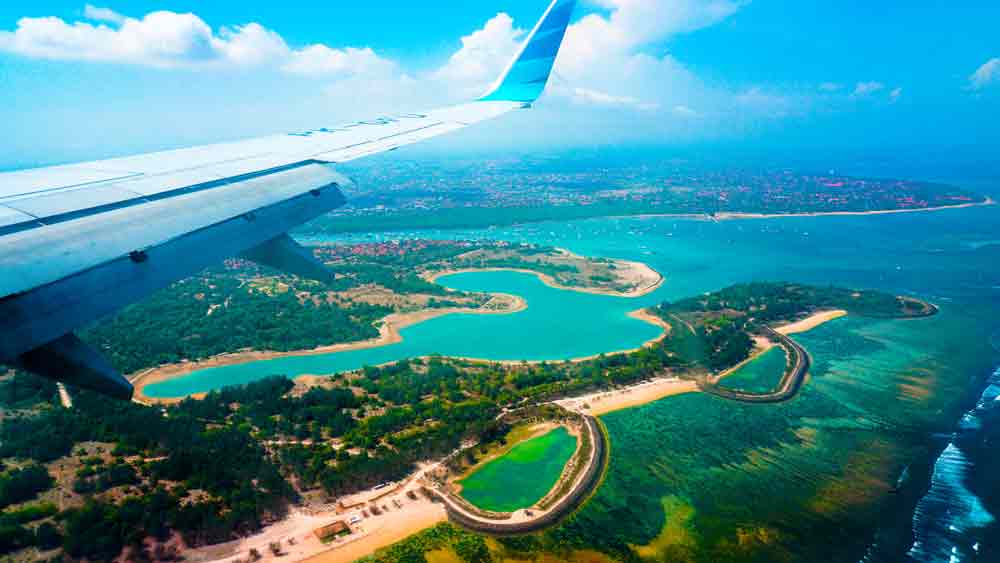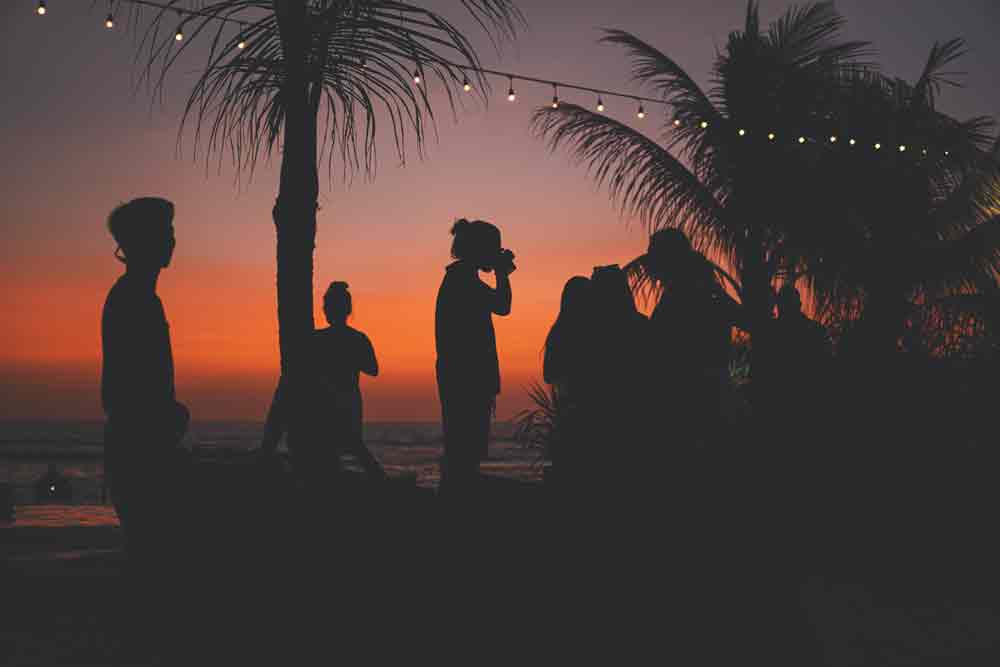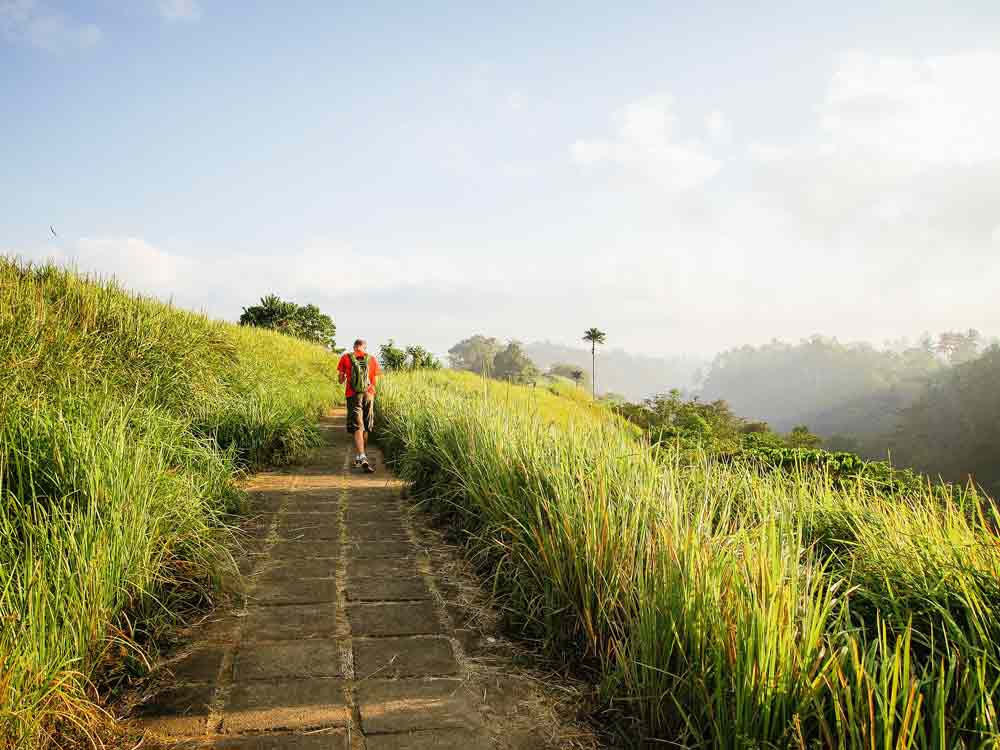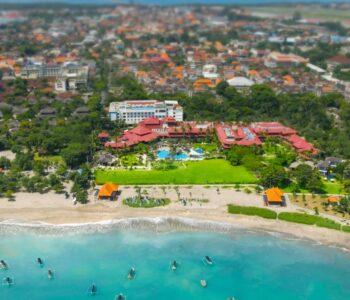In the last two to three weeks, Bali has enjoyed an increase in domestic tourism. This has been a mixture of post-Idul Fitri escapes, school holidays and perhaps some credit should be given to the Work from Bali campaign too.
With this increased interest, I have had friends living in Jakarta (and other parts of Java) reach out to me asking “Is Bali safe to visit?” So common is this question that it has prompted me to write this article, in hopes that my answer can provide some perspective to those with similar concerns.

Firstly, I feel the question puts me in a difficult position, as by answering with a simple ‘yes’ I have inadvertently accepted the responsibly for their well-being… I imagine a visiting friend complaining to me having caught Covid: “you told me it was safe, you liar!” The truth is, as long as the virus is around, there will always be a certain level of risk.
So, I have found a diplomatic answer, one that reverts the responsibility back on the inquirer whilst keeping the prospect of them visiting Bali very much open.
My answer is simply this: “Yes, Bali is safe, if you want it to be.” Or alternatively, “Your trip to Bali is as safe as you make it to be.”
It sounds like a non-answer, a scapegoat, but it is the most practical and honest answer I can give! I believe that Bali is safe to visit, but that degree of safety very much depends on what that visitor hopes to do whilst on the island. Let’s not put the onus on Bali alone here.
Like anywhere, the more public interaction you have, the less ‘safe’ you are. So, for those who are more cautious and more concerned, the solution is simply to avoid areas or venues that are too busy for your level of comfort. It sounds simple, but this fact seems to have gotten lost among the worries and fears that many people have at the moment.

In full transparency, there will be some areas or venues on the island that get too busy for some people’s comfort. For example, the south-coast beaches get particularly busy on a Sunday, especially at sunset. So, if you’re worried, don’t go at that time. A restaurant have too many diners for you right now? Don’t go in.
There are so many other destinations, activities, restaurants, cafés, beaches or hotels to choose from, all of whom would be grateful for the business. Why not give them a chance if your regular spots aren’t quite up to your standards.
What I’m saying is, whether Bali is safe or not also depends on the behaviour and choices of every visitor. This is relevant to: how you travel to Bali, what area you stay in, how often you eat out, if you go to an event, who you meet, if you mingle in crowds, and importantly, if you follow the safety precautions expected of you.
Comparing Covid Cases in Bali
At time of writing, the number of new cases in Indonesia has risen to similar levels to the last spike 5 months ago (Feb 2021), with over 15,000 new cases recorded on 23 June 2021 alone (nationwide).
In Jakarta, there are 35.700 active cases (22 June 2021), with a 90% occupancy for isolation rooms across 140 hospitals (20 June 2021). By contrast, Bali’s active cases are at 1028 and hospital bed occupancy per region doesn’t surpass 40% (24 June 2021).
This is not to diminish the seriousness of cases, even in Bali, who prior to this spike held a daily average of under 100 on-going active cases. But in comparison to the state of Jakarta, and other big cities in Java, Bali is certainly safer.
Assurances and Protocols
The incentive for Bali to be considered as a ‘safe place’ is bigger than any other region in Indonesia. The truth is, the population is currently far more concerned about the flailing tourist economy, now desperate to re-open.
With that, Bali has pushed two factors to create confidence: vaccinations and health protocols. By 22 June 2021, 1,989,720 residents have received their first dose; and 721,225 residents have received their second dose of vaccine.
On top of that, now over 1,000 businesses in Bali have been certified under the Government-run CHSE (Cleanliness, Health, Safety and Environmental Sustainability) program, aimed at ensuring health protocols are met to their standards.
Experiencing Bali During This Time

The level of fear in these big cities, with such high numbers, is understandable. And I believe that it is this same fear that is causing the worries for domestic tourists considering a trip to Bali.
But again, if you have to isolate anyway back home, why not do it on island where the case numbers are lower, hospitals are at lower occupancy, hospitality businesses are certified and vaccination rate (by relative population) is highest.
All of this before even considering the qualitative advantages of being in Bali! You can isolate in a villa by the beach, or in a hotel in the Bedugul highlands, waking up to fresh cool air and a view of misty mountainsides. You can walk along quiet shores, or rice field paths, decide to explore the depths of the island, climb a mountain, cycle around the neighbourhood. All of this is possible whilst staying safe.
Or, if you decide that you can’t do without the lifestyle pulls of South Bali, that’s entirely your choice, and you can weigh up your own ‘risk’ of engagement and interaction.
At the end of the day, your trip to Bali is as safe as you make it to be. The island is grateful for your visit, and it remains as wonderfully hospitable as ever.
P.S. Don’t blame Bali if you do contract Covid during a trip, because again your choices led you to your own level of risk. Instead, question if you did things in Bali that you wouldn’t have done back home (went to a bar or a busy mall; met with a larger group of people, even in private, etc). Bali can easily ask you: did you help to keep Bali safe?







